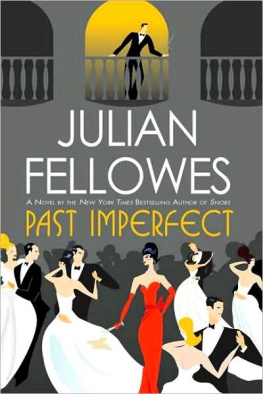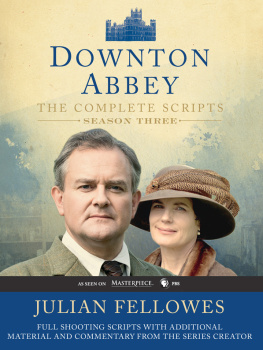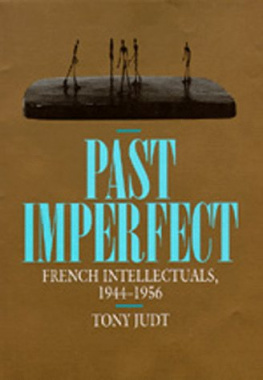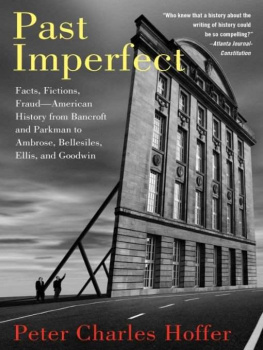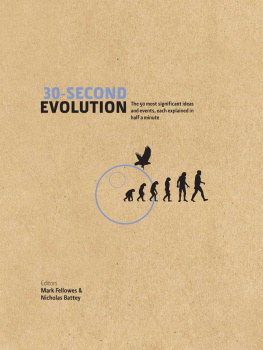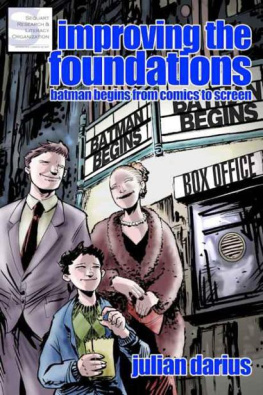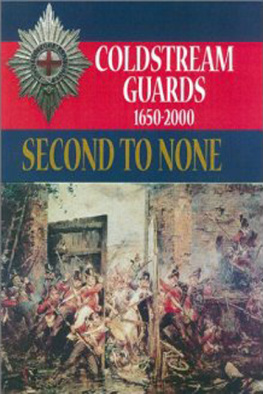Julian Fellowes - Past Imperfect
Here you can read online Julian Fellowes - Past Imperfect full text of the book (entire story) in english for free. Download pdf and epub, get meaning, cover and reviews about this ebook. year: 2008, publisher: Orion, genre: Art. Description of the work, (preface) as well as reviews are available. Best literature library LitArk.com created for fans of good reading and offers a wide selection of genres:
Romance novel
Science fiction
Adventure
Detective
Science
History
Home and family
Prose
Art
Politics
Computer
Non-fiction
Religion
Business
Children
Humor
Choose a favorite category and find really read worthwhile books. Enjoy immersion in the world of imagination, feel the emotions of the characters or learn something new for yourself, make an fascinating discovery.
- Book:Past Imperfect
- Author:
- Publisher:Orion
- Genre:
- Year:2008
- Rating:5 / 5
- Favourites:Add to favourites
- Your mark:
- 100
- 1
- 2
- 3
- 4
- 5
Past Imperfect: summary, description and annotation
We offer to read an annotation, description, summary or preface (depends on what the author of the book "Past Imperfect" wrote himself). If you haven't found the necessary information about the book — write in the comments, we will try to find it.
Past Imperfect — read online for free the complete book (whole text) full work
Below is the text of the book, divided by pages. System saving the place of the last page read, allows you to conveniently read the book "Past Imperfect" online for free, without having to search again every time where you left off. Put a bookmark, and you can go to the page where you finished reading at any time.
Font size:
Interval:
Bookmark:

Table of Contents
Also by Julian Fellowes
Snobs
Past Imperfect
JULIAN FELLOWES
Orion
www.orionbooks.co.uk
First published in Great Britain in 2008
by Weidenfeld & Nicolson
1 3 5 7 9 10 8 6 4 2
(c) Julian Fellowes 2008
All characters in this book are fictitious
and any resemblance to real persons, living or dead,
is purely coincidental.
All rights reserved. No part of this publication may be
reproduced, stored in a retrieval system, or transmitted,
in any form or by any means, electronic, mechanical,
photocopying, recording or otherwise, without the prior
permission of both the copyright owner and
the above publisher.
The right of Julian Fellowes to be identified as the
author of this work has been asserted in accordance
with the Copyright, Designs and Patents Act 1988.
A CIP catalogue record for this book
is available from the British Library.
eISBN : 978 0 2978 5579 8
Typeset by Input Data Services Ltd, Bridgwater, Somerset
Printed in Great Britain by Clays Ltd, St Ives, plc
The Orion Publishing Group's policy is to use papers that
are natural, renewable and recyclable products and made
from wood grown in sustainable forests. The logging and
manufacturing processes are expected to conform to
environmental regulations of the country of origin.
Weidenfeld & Nicolson
The Orion Publishing Group Ltd
Orion House 5 Upper Saint Martin's Lane
London, WC2H 9EA
An Hachette Livre UK Company
www.orionbooks.co.uk
To Emma and Peregrine
without whom nothing at all
would ever get written
Damian
ONE
London is a haunted city for me now and I am the ghost that haunts it. As I go about my business, every street or square or avenue seems to whisper of an earlier, different era in my history. The shortest trip round Chelsea or Kensington takes me by some door where once I was welcome but where today I am a stranger. I see myself issue forth, young again and dressed for some long forgotten frolic, tricked out in what looks like the national dress of a war-torn Balkan country. Those flapping flares, those frilly shirts with their footballers' collars - what were we thinking of? And as I watch, beside that wraith of a younger, slimmer me walk the shades of the departed, parents, aunts and grandmothers, great-uncles and cousins, friends and girlfriends, gone now from this world entirely, or at least from what is left of my own life. They say one sign of growing old is that the past becomes more real than the present and already I can feel the fingers of those lost decades closing their grip round my imagination, making more recent memory seem somehow greyer and less bright.
Which makes it perfectly understandable that I should have been just a little intrigued, if taken aback, to find a letter from Damian Baxter lying among the bills and thank yous and requests for charitable assistance that pile up daily on my desk. I certainly could not have predicted it. We hadn't seen each other in almost forty years, nor had we communicated since our last meeting. It seems odd, I know, but we had spent our lives in different worlds and although England is a small country in many ways, it is still big enough for our paths never to have crossed in all that time. But there was another reason for my surprise and it was simpler.
I hated him.
A glance was enough to tell me whom it was from, though. The writing on the envelope was familiar but changed, like the face of a favourite child after the years have done their unforgiving work. Even so, before that morning, if I'd thought of him at all, I would not have believed there was anything on earth that would have induced Damian to write to me. Or I to him. I hasten to add that I wasn't offended by this unexpected delivery. Not in the least. It is always pleasant to hear from an old friend but at my age it is, if anything, more interesting to hear from an old enemy. An enemy, unlike a friend, can tell you things you do not already know of your own past. And if Damian wasn't exactly an enemy in any active sense, he was a former friend, which is of course much worse. We had parted with a quarrel, a moment of savage, unchecked rage, quite deliberately powered by the heat of burning bridges, and we had gone our separate ways, making no subsequent attempt to undo the damage.
It was an honest letter, that I will say. The English, as a rule, would rather not face a situation that might be rendered 'awkward' by the memory of earlier behaviour. Usually they will play down any disagreeable past episodes with a vague and dismissive reference: 'Do you remember that frightful dinner Jocelyn gave? How did we all survive it?' Or, if the episode really cannot be reduced and detoxified in this way, they pretend it never took place. 'It's been far too long since we met,' as an opener will often translate as 'it does not suit me to continue this feud any longer. It was ages ago. Are you prepared to call it a day?' If the recipient is willing, the answer will be couched in similar denial mode: 'Yes, let's meet. What have you been up to since you left Lazard's?' Nothing more than this will be required to signify that the nastiness is finished and normal relations may now be resumed.
But in this case Damian eschewed the common practice. Indeed, his honesty was positively Latin. 'I dare say, after everything that happened, you did not expect to hear from me again but I would take it as a great favour if you would pay me a visit,' he wrote in his spiky, and still rather angry, hand. 'I can't think why you should, after the last time we were together, but at the risk of self-dramatising, I have not long to live and it may mean something to do a favour for a dying man.' At least I could not accuse him of evasion. For a while I pretended to myself that I was thinking it over, trying to decide, but of course I knew at once that I would go, that my curiosity must be assuaged, that I would deliberately revisit the lost land of my youth. For, having had no contact with Damian since the summer of 1970, his return to my conscious mind inevitably brought sharp reminders of how much my world, like everyone else's world for that matter, has changed.
There's danger in it, obviously, but I no longer fight the sad realisation that the setting for my growing years seems sweeter to me than the one I now inhabit. Today's young, in righteous, understandable defence of their own time, generally reject our reminiscences about a golden age when the customer was always right, when AA men saluted the badge on your car and policemen touched their helmet in greeting. Thank heaven for the end of deference, they say, but deference is part of an ordered, certain world and, in retrospect at least, that can feel warming and even kind. I suppose what I miss above all things is the kindness of the England of half a century ago. But then again, is it the kindness I regret, or my own youth?
'I don't understand who this Damian Baxter is exactly? Why is he so significant?' said Bridget as, later that evening, we sat at home eating some rather overpriced and undercooked fish, purchased from my compliant, local Italian on the Old Brompton Road. 'I've never heard you talk about him.' At the time when Damian sent his letter, not all that long ago in fact, I was still living in a large, ground-floor flat in Wetherby Gardens, which was comfortable, convenient for this and that, and wonderfully placed for the takeaway culture that has overwhelmed us in the last few years. It was quite a smart address in its way and I certainly could never have afforded to buy it, but it had been relinquished to me by my parents years before, when they had finally abandoned London. My father tried to object, but my mother had rashly insisted that I needed 'somewhere to start,' and he'd surrendered. So I profited from their generosity and fully expected not only to start, but also to finish, there. In truth, I hadn't changed it much since my mother's day and it was still filled with her things. We were sitting at her small, round breakfast table in the window as we spoke, and I suppose the whole apartment could have seemed quite feminine, with its charming pieces of Regency furniture and a boy ancestor in curls over the chimneypiece, were my masculinity not reasserted by my obvious and total lack of interest in its arrangements.
Next pageFont size:
Interval:
Bookmark:
Similar books «Past Imperfect»
Look at similar books to Past Imperfect. We have selected literature similar in name and meaning in the hope of providing readers with more options to find new, interesting, not yet read works.
Discussion, reviews of the book Past Imperfect and just readers' own opinions. Leave your comments, write what you think about the work, its meaning or the main characters. Specify what exactly you liked and what you didn't like, and why you think so.

